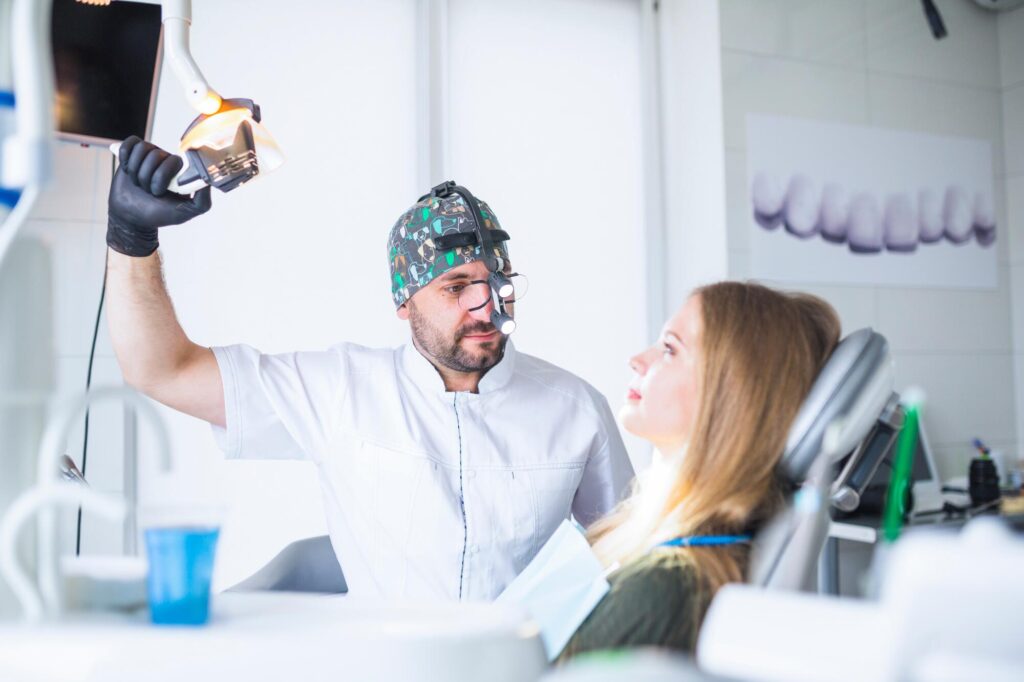Oral diseases affect nearly 3.7 billion people worldwide, making them a serious and widespread health issue. While many are preventable, they still pose significant challenges that can lead to pain, infection, and long-term damage if untreated.
Tooth pain is never something to ignore, especially when it lingers or worsens over time. Many assume a regular dental visit is enough to handle any oral issue, but some cases require specialist care.
That’s where an endodontist in Colorado Springs comes in. These specialists diagnose and treat problems deep inside the tooth, particularly in the pulp and root canal system.
Recognizing when to visit an endodontist can prevent major dental complications and help you save your natural teeth. Below are seven vital signs that show it’s time to seek endodontic care. Keep reading to learn more about this specialized dental service and how to find the best Colorado provider.
1. Persistent or Throbbing Tooth Pain
A dull ache that won’t go away or a sharp, stabbing pain when you chew is often a red flag. Persistent tooth pain usually signals an underlying issue. Here are some possible causes to be aware of.
Inflamed or Infected Dental Pulp
This is often linked to pulpitis, inflammation, or infection of the soft tissue inside the tooth. If untreated, it can cause intense, persistent pain.
A Deep Cavity That Has Reached the Nerve
A cavity extending into the pulp can expose the nerve, leading to sharp, throbbing pain. This may also cause sensitivity to hot or cold temperatures.
Dental Work Complications
Tooth pain is often linked to dental procedures that haven’t fully resolved an issue or have led to new problems. These complications may involve:
- Fillings: If a filling is too high or doesn’t bond properly, it can cause sensitivity or pressure pain
- Crowns: A poorly fitted crown may leave gaps that allow bacteria to enter, leading to decay or infection
- Previous root canal treatments: Incomplete removal of infected tissue or missed canals can cause lingering or returning pain
Nerve Damage or Referred Pain
Nerve damage in the tooth, often from trauma or pressure, can cause persistent throbbing pain. Pain from conditions like sinus infections, jaw issues (such as TMJ), or nerve problems in other areas of the body can also be felt as tooth pain. An endodontist can diagnose the source of pain and offer the most effective endodontic treatment options, such as:
- Root canal treatment to clear the infected pulp and seal the tooth
- Pulpotomy (in some cases) to remove part of the pulp and preserve the rest
- Apicoectomy (surgical root-end removal) if a root canal alone isn’t enough
2. Lingering Sensitivity to Temperature
Brief sensitivity to temperature changes is normal, but pain that lasts more than a few seconds may signal nerve damage. Common signs include the following:
- Sharp pain when drinking hot coffee
- Intense cold sensitivity after eating ice cream
- Discomfort that continues long after the temperature stimulus is gone
This often points to pulp inflammation or infection. The condition can worsen without prompt treatment and lead to an abscess or tooth loss.
3. Swelling or Tenderness Near the Tooth
Swelling in the jaw or face is a classic symptom of tooth infection. This may result from untreated decay, trauma, or complications from previous dental work. You might notice:
- A swollen gum area around a specific tooth
- A pimple-like bump near the base of the tooth
If the infection reaches the root, it can spread through the bloodstream and lead to serious complications, including:
- Abscesses in other areas of the body
- Cellulitis (a skin infection)
- Sepsis (a life-threatening infection response)
- Endocarditis (heart valve infection)
- Osteomyelitis (bone infection)
- Meningitis (brain or spinal cord infection)
When to Schedule an Emergency Dental Visit
When swelling is present, a dental visit is strongly recommended. These signs mean you need help right away:
- Pus or a visible abscess
- Fever or swollen lymph nodes along with oral symptoms
- When a tooth feels loose or wobbly
- Foul-tasting drainage or bad breath
4. Tooth Discoloration That Doesn’t Go Away
Stains from coffee or tobacco are common, but when one tooth turns gray, black, or darker than the rest, it could indicate internal damage. This kind of discoloration often means:
- The nerve inside the tooth has died
- Trauma has damaged the blood vessels in the pulp
- Bacteria have penetrated and infected the tooth’s inner structures
A dead or dying tooth won’t respond to surface whitening treatments. An endodontist may recommend root canal therapy to remove the damaged pulp and preserve the tooth.
5. Cracked, Chipped, or Fractured Teeth
Tooth damage is not always obvious or painful right away. But even small cracks or chips can expose the inner pulp to bacteria. Watch for the following:
- Sudden pain when biting
- Sensitivity when chewing
- Discomfort in the tooth after eating hard foods
A crack extending into this sensitive tissue can lead to infection. In many cases, placing a crown alone won’t resolve the issue. Seeing an endodontist ensures that the inside of the tooth is thoroughly examined and, if necessary, treated with correct endodontic procedures before restoration.
This approach may save the tooth from more invasive treatments, such as extraction.
6. Pain Following a Dental Procedure
Feeling a little sore after dental work is normal. But when pain doesn’t go away, or worsens days or weeks after a filling, crown, or earlier root canal treatment, there may be an underlying issue. Possible reasons may include:
- Incomplete removal of infected pulp during the previous procedure
- A hidden canal in the tooth
- New decay forming under a crown or filling
- Complications from dental trauma
If discomfort increases or persists, you will likely be referred to an endodontist. They have advanced tools that can detect issues that may have been missed during routine dental care.
This includes cone-beam CT scans that produce 3D images, helping to identify hidden problems such as infections or cracks. Endodontists also rely on microscopes with high magnification, allowing them to see fine details and treat the tooth with greater precision.
7. Dental Injury or Knocked-Out Tooth
Accidents happen- sports injuries, falls, or other trauma can cause severe dental damage. This may include teeth that are:
- Knocked loose or fully out of the socket
- Shifted or displaced from their original position
- Cracked below the gumline
Immediate evaluation and treatment are crucial in these cases. If a tooth is knocked out, handle it carefully by the crown (the part that is usually visible in the mouth), not the root. If dirty, rinse it gently with milk or saline: do not scrub or use soap.
If possible, place it back in the socket and bite down gently on a clean piece of gauze to hold it in place. If reinserting isn’t an option, store the tooth in milk or between your cheek and gums until you reach an emergency dentist. They may be able to reposition the tooth, stabilize it, and use interventions like pulp therapy to keep it alive.
What an Endodontist Offers That a General Dentist Doesn’t
Colorado Springs dental care providers often refer dental trauma patients to experienced endodontists for these situations. While general dentists are trained to manage a wide range of oral health issues, endodontists specialize in treating the inside of the tooth. They complete two or more years of advanced training after dental school and specialize in procedures like:
- Root canal therapy
- Retreatment of failed root canals
- Endodontic surgery (apicoectomy)
- Treatment of traumatic dental injuries
- Management of complex dental pain and infections
They also use state-of-the-art tools and rotary instruments that improve accuracy and outcomes. Visiting an endodontist in Colorado Springs ensures you get expert care specifically focused on preserving your natural teeth and relieving deep-rooted pain.
Tips for Selecting an Endodontist
Finding the best endodontist in Colorado Springs is key in ensuring you receive high-quality care to address these seven signs. Ask your dentist for a referral. You can also ask for recommendations from family, friends, or colleagues.
Websites like Google, Yelp, and Healthgrades can provide valuable insights into patient experiences with specific endodontists. Look for an endodontist with a consistent history of positive feedback, especially regarding their:
- Skills
- Professionalism
- Patients’ comfort level during procedures
Ensure the endodontist you are considering is board-certified and has extensive experience in the necessary procedures. You can often find this information on their website or by contacting their office directly. Find an endodontist who uses up-to-date technology for more accurate diagnoses and treatments.
Finding the Right Endodontist in Colorado Springs for Your Needs
Tooth pain, sensitivity, swelling, or visible damage often signal deeper issues. When the pulp or roots are affected, seeing an experienced endodontist in Colorado Springs is the best choice for accurate diagnosis and treatment. Recognizing these seven signs can prevent complications and save your natural teeth.
Pinnacle Dentistry offers advanced, personalized preventative, cosmetic, and restorative dental care. With Dr. Jennings and Dr. Perrett leading the team, you can expect a thorough and conservative treatment plan tailored to your needs, utilizing state-of-the-art technology for an exceptional patient experience. Contact us today and experience the difference we can make.



